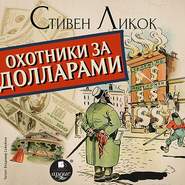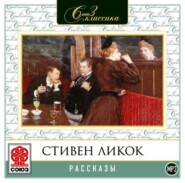По всем вопросам обращайтесь на: info@litportal.ru
(©) 2003-2025.
✖
The Hohenzollerns in America
Автор
Год написания книги
2019
Настройки чтения
Размер шрифта
Высота строк
Поля
5.—The War News as I Remember it
Everybody, I think, should make some little contribution towards keeping alive the memories of the great war. In the larger and heroic sense this is already being done. But some of the minor things are apt to be neglected. When the record of the war has been rewritten into real history, we shall be in danger of forgetting what WAR NEWS was like and the peculiar kind of thrill that accompanied its perusal.
Hence in order to preserve it for all time I embalm some little samples of it, selected of course absolutely at random,—as such things always are—in the pages of this book.
Let me begin with:—
I—THE CABLE NEWS FROM RUSSIA
This was the great breakfast-table feature for at least three years. Towards the end of the war some people began to complain of it. They said that they questioned whether it was accurate. Here for example is one fortnight of it.
Petrograd, April 14. Word has reached here that the Germans have captured enormous quantities of grain on the Ukrainian border.
April 15. The Germans have captured no grain on the Ukrainian border. The country is swept bare.
April 16. Everybody in Petrograd is starving.
April 17. There is no lack of food in Petrograd.
April 18. The death of General Korniloff is credibly reported this morning.
April 19. It is credibly reported this morning that General Korniloff is alive.
April 20. It is credibly reported that General Korniloff is hovering between life and death.
April 21. The Bolsheviki are overthrown.
April 22. The Bolsheviki got up again.
April 23. The Czar died last night.
April 24. The Czar did not die last night.
April 25. General Kaleidescope and his Cossacks are moving north.
April 26. General Kaleidescope and his Cossacks are moving south.
April 27. General Kaleidescope and his Cossacks are moving east.
April 28. General Kaleidescope and his Cossacks are moving west.
April 29. It is reported that the Cossacks under General Kaleidescope have revolted. They demand the Maximum. General Kaleidescope hasn't got it.
April 30. The National Pan-Russian Constituent Universal
Duma which met this morning at ten-thirty, was dissolved at twenty-five minutes to eleven.
My own conclusion, reached with deep regret, is that the Russians are not yet fit for the blessings of the Magna Carta and the Oklahama Constitution of 1907. They ought to remain for some years yet under the Interstate Commerce Commission.
II—SAMPLE OF SPECIAL CORRESPONDENCE
New York (through London via Holland and coming out at Madrid). Mr. O. Howe Lurid, our special correspondent, writing from "Somewhere near Somewhere" and describing the terrific operations of which he has just been an eyewitness, says:
"From the crest where I stood, the whole landscape about me was illuminated with the fierce glare of the bursting shells, while the ground on which I stood quivered with the thunderous detonation of the artillery.
"Nothing in the imagination of a Dante could have equalled the lurid and pyrogriffic grandeur of the scene. Streams of fire rose into the sky, falling in bifurcated crystallations in all directions. Disregarding all personal danger, I opened one eye and looked at it.
"I found myself now to be the very centre of the awful conflict. While not stating that the whole bombardment was directed at me personally, I am pretty sure that it was."
I admit that there was a time, at the very beginning of the war, when I liked this kind of thing served up with my bacon and eggs every morning, in the days when a man could eat bacon and eggs without being labelled a pro-German. Later on I came to prefer the simple statements as to the same scene and event, given out by Sir Douglas Haig and General Pershing—after this fashion:
"Last night at ten-thirty P.M. our men noticed signs of a light bombardment apparently coming from the German lines."
III—THE TECHNICAL WAR DESPATCHES
The best of these, as I remember them, used to come from the Italian front and were done after this fashion:—
"Tintino, near Trombono. Friday, April 3. The Germans, as I foresaw last month they would, have crossed the Piave in considerable force. Their position, as I said it would be, is now very strong. The mountains bordering the valley run—just as I foresaw they would—from northwest to southeast. The country in front is, as I anticipated, flat. Venice is, as I assured my readers it would be, about thirty miles distant from the Piave, which falls, as I expected it would, into the Adriatic."
IV—THE WAR PROPHECIES
Startling Prophecy in Paris. All Paris is wildly excited over the extraordinary prophecy of Madame Cleo de Clichy that the war will be over in four weeks. Madame Cleo, who is now as widely known as a diseuse, a liseuse, a friseuse and a clairvoyante, leaped into sudden prominence last November by her startling announcement that the seven letters in the Kaiser's name W i l h e l m represented the seven great beasts of the apocalypse; in the next month she electrified all Paris by her disclosure that the four letters of the word C z a r—by substituting the figure 1 for C, 9 for Z, 1 for A, and 7 for R produce the date 1917, and indicated a revolution in Russia. The salon of Madame Cleo is besieged by eager crowds night and day. She may prophesy again at any minute.
Startling Forecast. A Russian peasant, living in Semipalatinsk, has foretold that the war will end in August. The wildest excitement prevails not only in Semipalatinsk but in the whole of it.
Extraordinary Prophecy. Rumbumbabad, India. April 1. The whole neighbourhood has been thrown into a turmoil by the prophecy of Ram Slim, a Yogi of this district, who has foretold that the war will be at an end in September. People are pouring into Rumbumbabad in ox-carts from all directions. Business in Rumbumbabad is at a standstill.
Excitement in Midgeville, Ohio. William Bessemer Jones, a retired farmer of Cuyahoga, Ohio, has foretold that the war will end in October. People are flocking into Midgeville in lumber wagons from all parts of the country. Jones, who bases his prophecy on the Bible, had hitherto been thought to be half-witted. This is now recognised to have been a wrong estimate of his powers. Business in Midgeville is at a standstill.
Dog's Foot. Wyoming. April 1. An Indian of the Cheyenne tribe has foretold that the war will end in December. Business among the Indians is at a standstill.
V—DIPLOMATIC REVELATIONS
These were sent out in assortments, and labelled Vienna, via London, through Stockholm. After reading them with feverish eagerness for nearly four years, I decided that they somehow lack definiteness. Here is the way they ran:
"Special Correspondence. I learn from a very high authority, whose name I am not at liberty to mention, (speaking to me at a place which I am not allowed to indicate and in a language which I am forbidden to use)—that Austria-Hungary is about to take a diplomatic step of the highest importance. What this step is, I am forbidden to say. But the consequences of it—which unfortunately I am pledged not to disclose—will be such as to effect results which I am not free to enumerate."
VI—A NEW GERMAN PEACE FORMULA
Dr. Hertling, the Imperial Chancellor, speaking through his hat in the Reichstag, said that he wished to state in the clearest language of which he was capable that the German peace plan would not only provide the fullest self determination of all ethnographic categories, but would predicate the political self consciousness (politisches Selbstbewusztsein) of each geographical and entomological unit, subject only to the necessary rectilinear guarantees for the seismographic action of the German empire. The entire Reichstag, especially the professorial section of it, broke into unrestrained applause. It is felt that the new formula is the equivalent of a German Magna Carta—or as near to it as they can get.
VII—THE FINANCIAL NEWS
The war finance, as I remember it, always supplied items of the most absorbing interest. I do not mean to say that I was an authority on finance or held any official position in regard to it. But I watched it. I followed it in the newspapers. When the war began I knew nothing about it. But I picked up a little bit here and a little bit there until presently I felt that I had a grasp on it not easily shaken off.
It was a simple matter, anyway. Take the case of the rouble. It rose and it fell. But the reason was always perfectly obvious. The Russian news ran, as I got it in my newspapers, like this:—
"M. Touchusoff, the new financial secretary of the Soviet, has declared that Russia will repay her utmost liabilities. Roubles rose."














